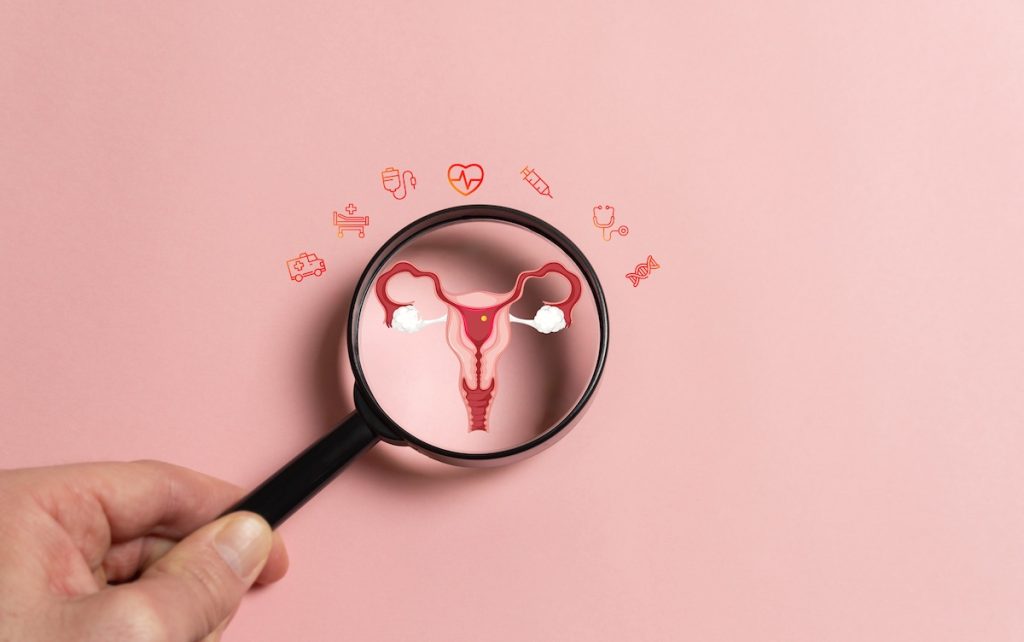Comprehensive Care for Reproductive Health Post-Cancer Diagnosis
Posted By:
Dr. Michael Coyle, DO FACOOG, FPMRS

Regardless of the cancer type, the treatments involved can put women’s reproductive health at risk. From chemotherapy medications to surgery, many treatment approaches have direct impacts on reproductive organs and hormone functions. Unfortunately, these effects can leave you dealing with concerns about losing the ability to conceive, facing early menopause and more. However, the best level of holistic care after a cancer diagnosis can make a drastic difference.
Understanding the Impact of Cancer on Reproductive Health
Cancer treatments can significantly impact a woman’s reproductive health. For instance, chemotherapy often leads to damage to the ovaries, which reduces egg quality and quantity, as well as the natural menstrual cycle. Likewise, treatments like radiation can impair or even halt uterine function, which also affects reproductive processes and fertility. If surgery like a hysterectomy is necessary, reproductive organs may have to be removed entirely. As a result, the hormonal balance often shifts and causes early menopause.
Beyond the physical effects, the emotional toll can be just as challenging. Women frequently face grief over potentially lost fertility in addition to emotional challenges brought on by navigating cancer treatment. Additionally, anxiety about intimacy and exhaustion from hormonal shifts often come about.
Fertility Preservation Options
While cancer can be detrimental to the female reproductive system, there are options for fertility preservation. Egg freezing or embryo freezing are possible options. Ovarian tissue preservation is another innovative procedure that involves surgically removing and then storing ovarian tissue, which can be re-implanted post-treatment.
Because cancer treatments can impact fertility so rapidly once started, early consultation with a fertility specialist is crucial. Dr. Coyle at Coyle Institute can help you assess options tailored to your individual needs and offer recommendations for fertility specialists. This step ensures women understand how to maximize their chances of preserving their reproductive potential.
Managing Menopause After Cancer
Cancer treatments can trigger early menopause by disrupting ovarian function. As a result, women may experience symptoms such as hot flashes, low libido and mood changes. The acceleration of the stages of menopause happening far sooner than anticipated can feel disorienting, but it is manageable with the right approach.
When suitable, Bio-Identical hormone replacement therapy (BHRT) may be recommended. Alternatively, non-hormonal treatments like moisturizers may be valuable for vaginal dryness or discomfort. Lifestyle adjustments may also help, such as practicing relaxation techniques, being more active or making dietary adjustments.
At the Coyle Institute, we help women navigate menopausal symptoms after cancer by exploring all options and building a plan tailored to their needs. Our goal is always focused on restoring comfort and confidence during this transition, as we prioritize supporting your quality of life and maintaining your safety.
Rebuilding Sexual Health and Intimacy
Cancer treatments can profoundly affect sexual health, oftentimes altering a woman’s experience in intimate moments and her overall desire for sex. For example, chemotherapy may lower libido by shifting hormone levels. Radiation or surgery can cause discomfort during intercourse due to vaginal dryness or scarring. Additionally, body image concerns may arise from physical changes. Though these challenges feel daunting, they can be navigated with the best level of support and care.
Practical steps make a difference in rebuilding intimacy. Open communication with partners fosters understanding, while lubricants and moisturizers ease physical discomfort. Counseling can also heal emotional wounds. The Coyle Institute offers compassionate guidance along the way, whether that means helping you regain confidence with procedures like vaginal rejuvenation, diVa® vaginal laser therapy, or the O-Shot® therapy, or offering comfort through tailored support from mental health professionals.
Holistic Support and Comprehensive Care at the Coyle Institute
After a cancer diagnosis, the team at the Coyle Institute provides holistic care that nurtures every facet of a woman’s reproductive health. Beyond addressing physical challenges, we also tend to a patient’s emotional and psychological well-being. This compassionate approach ensures women feel supported as they heal. They must have a safe space to process their journey.
We utilize a multidisciplinary strategy by collaborating with oncologists, fertility specialists and mental health professionals to create a comprehensive care plan to address all the needs a woman can face in the days before and after cancer treatment. This integrated effort guides patients through each stage with personalized attention.
Seeking Support for Reproductive Health After Cancer
After a cancer diagnosis, seek professional help for reproductive health concerns as soon as possible. Early intervention makes a significant difference by addressing challenges like fertility loss or menopause with the most timely care. Comprehensive support ensures you feel empowered throughout your treatment and during recovery.
Contact the Coyle Institute at 850-637-8258 for a consultation and to explore personalized options for fertility preservation, menopause management and sexual health. We’re here to help provide the compassionate support you need.

